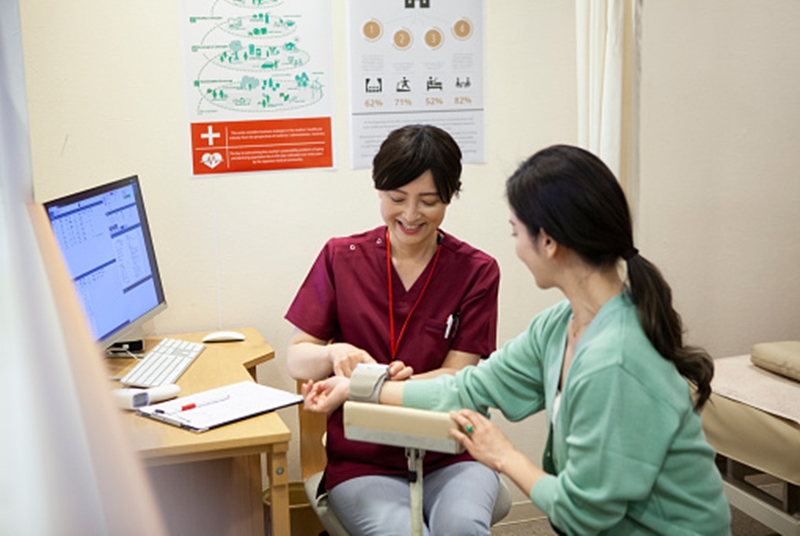What is heart disease?
Heart disease refers to several types of heart conditions that affect the heart itself, the blood vessels supplying it and the rhythm of its contractions. Common examples include coronary artery disease, heart valve problems, cardiomyopathy (disease of the heart muscle), arrhythmia (abnormal heartbeat) and congenital (from birth) heart defects.
Heart disease is a major cause of death worldwide.
the main symptoms are chest pain, shortness of breath, pain in your neck, shoulders, jaw or arms, feeling faint and feeling sick – but not everyone has the same symptoms, and some may not have any. But according to a cardiologist, there are symptoms especially women should be aware of, as it’s something doctors sometimes miss.
What are common heart disease symptoms in women?
First, women should be aware that their heart disease symptoms can differ from those typically seen in men. Women’s symptoms may be less obvious and more easily mistaken for other conditions. Women may experience less frequent chest pain compared to men. They are more likely to describe this feeling as a dull ache or discomfort, or atypical (unusual) chest pain, back ache or right-sided chest pain.
Common heart disease symptoms in women may include the following:
- Chest pain or discomfort that can feel like pressure, squeezing, fullness or pain in the center of your chest. This feeling may last for more than a few minutes or come and go.
- Shortness of breath that can occur with or without chest discomfort and may worsen with activity
- Unusual or extreme fatigue that doesn’t improve with rest
- Pain in other areas, including the arms, back, neck, jaw or upper abdomen
- Nausea or vomiting that could be mistaken for indigestion
- Dizziness or lightheadedness: You may feel like you’re going to faint, or that the room is spinning.
- Fast or irregular heartbeat: Your heart may feel like it’s racing, skipping beats or fluttering.
- Sweating: You may experience a cold, clammy sweat even when you’re not hot.
- Swelling in the feet, ankles, legs or abdomen: Swelling can be a sign of fluid buildup due to heart problems.
How do these symptoms differ from those in men? What explains these differences?
Hormonal changes and the menstrual cycle can affect how symptoms of heart disease show up in women.
Women are more likely than men to experience the following heart disease symptoms:
- Upper back, neck, jaw or throat pain that can be mistaken for muscle tension or stress
- Shortness of breath, often occurring with minimal exertion (effort) or while at rest
- Unusual and persistent tiredness unlike typical daily fatigue
- Nausea, vomiting or indigestion that can mimic stomach issues, making diagnosis harder
- Dizziness, lightheadedness or fainting, sometimes mistaken for anxiety or dehydration
- Extreme sweating, not necessarily associated with physical activity
- Difficulty falling or staying asleep
Does heart disease often go undiagnosed in women? Why might this be?
Women may present with atypical symptoms as described in the previous answer. These symptoms can be easily mistaken for other conditions, such as anxiety or stress.
What are heart disease risk factors that are common in both women and men?
- Obesity: Being overweight or obese significantly increases your risk of heart disease. Excess weight puts strain on your heart and can contribute to other risk factors like high blood pressure and diabetes.
- Smoking: Smoking is one of the most significant risk factors for heart disease, damaging blood vessels and increasing the risk of blood clots.
- Physical inactivity: Not getting enough regular physical activity weakens your heart and contributes to other risk factors like obesity and high blood pressure.
- Unhealthy diet: Diets high in cholesterol, salt, sugar, and saturated and trans fats can increase your risk of heart disease.
What heart disease risk factors are specific to women?
The following heart disease risk factors are specific to females:
- Menopause: After menopause, a woman’s estrogen levels drop significantly, increasing the risk of high cholesterol, blood clots and atherosclerosis (plaque buildup in arteries).
- Pregnancy complications: Preeclampsia (high blood pressure during pregnancy), gestational diabetes (diabetes during pregnancy) and polycystic ovary syndrome (PCOS, a hormonal disorder) can elevate future heart disease risk.
- Autoimmune diseases: Conditions like lupus, rheumatoid arthritis and Sjogren’s syndrome can raise inflammation and increase heart disease risk. (While autoimmune diseases can occur in men, they are more common in women.)
- Migraines with aura: Women who experience migraines with aura (visual disturbances) have a higher risk of stroke and blood clots.
How might a woman know she is experiencing a heart attack?
The following symptoms can indicate that a woman is having a heart attack:
- Chest discomfort: Instead of a crushing chest pain that a man might experience, this sensation might be described as tightness, pressure or burning for a woman. This discomfort may be located in the upper back, neck or jaw.
- Unusual pain: Pain in the arms, shoulders, elbows or upper back can be another sign of a heart attack in women.
- Other symptoms: Shortness of breath, fatigue, nausea, lightheadedness and sudden sweating also can occur.
Would these symptoms differ from a man’s?
The following heart attack symptoms are more common in women:
- Pain in the upper back or jaw that can be mistaken for muscle pain or jaw problems
- Extreme fatigue, which may be the only symptom some women experience
- Nausea and vomiting, which can be mistaken for indigestion or the flu
- Lightheadedness or dizziness, which may be mistaken for anxiety or panic attacks
What can women do to lower their risk of heart disease?
Here are three practical tips:
- Get regular exercise: Aim for at least 150 minutes of moderate-intensity aerobic activity or 75 minutes of vigorous-intensity aerobic activity each week. Strength training also is important.
- Eat a healthy diet: Choose plenty of fruits, vegetables and whole grains. Limit saturated and trans fats, cholesterol, sodium and added sugar.
- Maintain a healthy weight: Being overweight or obese is a major risk factor for heart disease. Even losing a small amount of weight can make a big difference.
If you think you may be having a heart attack, please call emergency centre of your nearest hospital immediately for an ambulance or go to the hospital as soon as possible.





